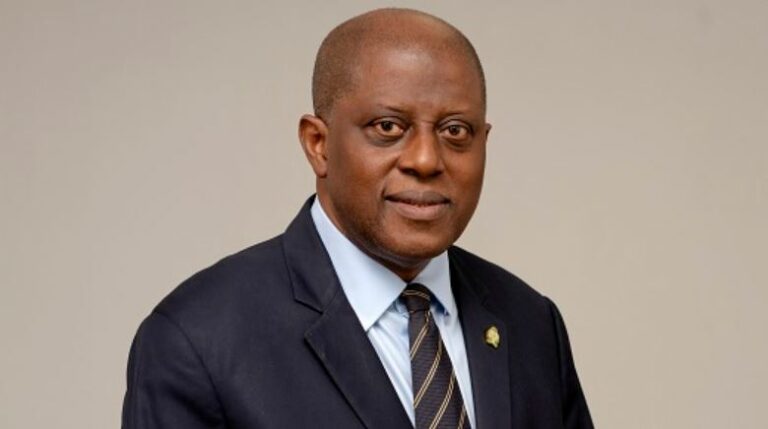MPC Faces Crucial Decision Amid Falling Inflation and Stable FX Rates
With two consecutive declines in Nigeria’s inflation rate and growing stability in the foreign exchange (FX) market, expectations are mounting that the Monetary Policy Committee (MPC) may opt for a rate cut at its upcoming 301st meeting scheduled for July 21–22 in Abuja.
According to the National Bureau of Statistics (NBS), Nigeria’s headline inflation dropped to 22.22% in June 2025 from 22.97% in May, marking the second straight month of moderation. This follows the NBS’s earlier rebasing of the Consumer Price Index, which had reduced inflation to 24.48% in January from 34.80% in December 2024.
The MPC, which has maintained a tight monetary stance—hiking rates six times in 2024 and holding them steady twice in 2025—had left the benchmark interest rate unchanged at 27.5% during its May meeting. That decision reflected cautious optimism, supported by narrowing exchange rate gaps, lower PMS prices, and a favourable trade balance—all suggesting easing inflationary pressures.
Divided Opinions Among Analysts
Stakeholders remain split on the likely outcome of this month’s meeting. While some expect a modest rate cut in response to FX stability and inflation moderation, others believe the MPC will retain its hawkish posture to avoid disrupting fragile economic gains.
Analysts at Afrinvest Securities Limited anticipate no change in policy, citing external risks, food supply shocks from insecurity and flooding, and uncertainties surrounding the delayed release of Nigeria’s rebased Q1 2025 GDP figures. They had earlier projected a June inflation rate of 22.2%, attributing the decline to a stronger naira (which appreciated by 3.6% to N1,529.71 in June) and the high base-year effect from 2024’s 34.2% rate.
Calls for a Rate Cut
Contrasting this view, Bismarck Rewane, Managing Director of Financial Derivatives Company (FDC), advocates a 25-basis-point rate cut to 25%. He believes reduced interest rates would lower borrowing costs for SMEs and rejuvenate the productive sector. FDC projected June inflation at 22.65%, citing contributing factors like a ₦100 drop in PMS prices, naira stability, and slower money supply growth.
While core inflation was projected to decline from 22.28% to 20.94%, food inflation was expected to rise slightly from 21.14% to 21.56%. FDC emphasized that stability in the FX market helped contain inflation, and that a further cut in depot prices by Dangote Refinery could bring pump prices—and inflation—down even further.
Optimism Tempered by Global and Domestic Risks
Analysts at Cordros Securities suggest that although disinflation may prompt the MPC to consider monetary easing, global financial tightening, geopolitical tensions, and trade uncertainties could limit the extent of rate cuts. They forecast robust GDP growth in the second half of 2025, supported by easing reform-induced economic strains and expect future decisions to be driven primarily by FX and inflation dynamics.
Central Bank of Nigeria (CBN) Governor Olayemi Cardoso has affirmed the apex bank’s commitment to stabilizing FX and financial markets. “We will continue to consolidate market gains and enhance collaboration with the fiscal authorities,” he stated. Cardoso reiterated that the CBN remains vigilant, aiming to bring inflation down to single digits in the medium to long term.
The naira has gained 7.27% so far this year, appreciating from ₦1,650 in January to ₦1,530 in the alternative FX market—fueled by reduced FX demand, strong CBN intervention, and improved investor sentiment.
Mixed Reactions in the Real Sector
Businesses in the real sector have expressed support for the MPC’s cautious stance, noting that high interest rates have helped sustain naira appreciation and stabilize borrowing costs.
MPC members have emphasized ongoing monetary reforms and highlighted improvements in oil production—currently at 1.74 million barrels per day—as a growth driver. The committee has also welcomed the CPI rebasing and revised weightings, which better reflect consumption patterns.
The MPC expects continued FX market stability, aided by the launch of the Electronic Foreign Exchange System and the FX Market Code, to boost foreign investment inflows and improve the current account balance.
A Delicate Balancing Act
Despite the encouraging data, the MPC is mindful of external risks such as the Russia-Ukraine war, Middle East conflicts, and the threat of a global trade war stemming from U.S. tariff hikes. The IMF has, however, retained its global growth forecast at 3.3% for both 2025 and 2026.
Domestically, Charles Abuede, Head of Research at Cowry Asset Management, believes the MPC is cautiously shifting toward growth support amid easing inflation. He noted that excessively tight policies may have reached their limits, with the Monetary Policy Rate at 27.5% and Cash Reserve Ratio at 50%.
“Interest rates above 35% are already stifling many businesses. We must address food inflation, which remains a significant driver,” Abuede said. He added that development finance interventions should complement CBN’s orthodox approach.
Similarly, the Nigerian Economic Summit Group foresees a shift to accommodative policy by late 2025, with the MPC likely to lower rates to stimulate economic activity.
As the committee convenes in Abuja, it faces a critical decision: whether to ease monetary policy in response to disinflation and FX stability or maintain a cautious stance amid lingering external and domestic threats. With inflation falling, the naira strengthening, and investor confidence gradually returning, many believe that the case for a modest rate cut has never been stronger.














Post Comment